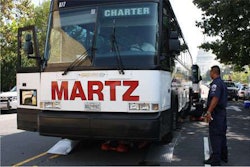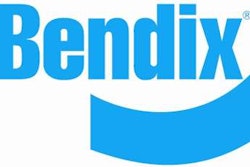The Senate Commerce Committee’s Commercial Motor Vehicle Safety Enhancement Act of 2011, S.1950, will have a significant impact on commercial motor vehicle safety as long as funding and flexibility is there to support them, according to the Commercial Vehicle Safety Alliance. S. 1950 includes provisions addressing critical matters, such as maintenance of effort, flexibility in motor carrier safety grants to states, stronger registration and new entrant requirements.
“The language in the S. 1950 bill represents a huge step forward in preserving the priority we place on commercial vehicle safety,” says Stephen Keppler, CVSA executive director. “More work remains to be done, however, particularly regarding the grant funding levels, administration and distribution, matching requirements and the takedowns for training. The safety and enforcement activities delivered by grant recipients under the Motor Carrier Safety Assistance Program have been shown through research and performance statistics to have a positive impact on commercial vehicle safety, and we need to ensure adequate resources continue to be available at targeting efforts on saving lives.”
CVSA says the bill addresses the MOE issue by adjusting the benchmark years (2004/2005), making them static and providing for waivers when necessary. S. 1950 provides additional flexibility in motor carrier safety grants and creates stronger registration and new entrant requirements to help address chameleon carriers. Finally, S. 1950 incorporates stronger provisions for bus safety, increases fine limits and tightens CDL and driver training requirements.
S. 1950 also addresses the requirements for inclusion of electronic onboard recorders; the requirement for safety rating reciprocity with Canada; and language regarding development of a drug and alcohol clearinghouse. Finally, the inclusion of a comprehensive truck size and weight study and an analysis of the impact to safety and the existing regulatory framework are two critical items that will help guide future commercial vehicle policy, CVSA says.
“CVSA will continue to work with the Congress to further improve language in the bill regarding critical issues, such as funding for program delivery, training and grant flexibility, to ensure that states’ needs are adequately met,” says Keppler.











